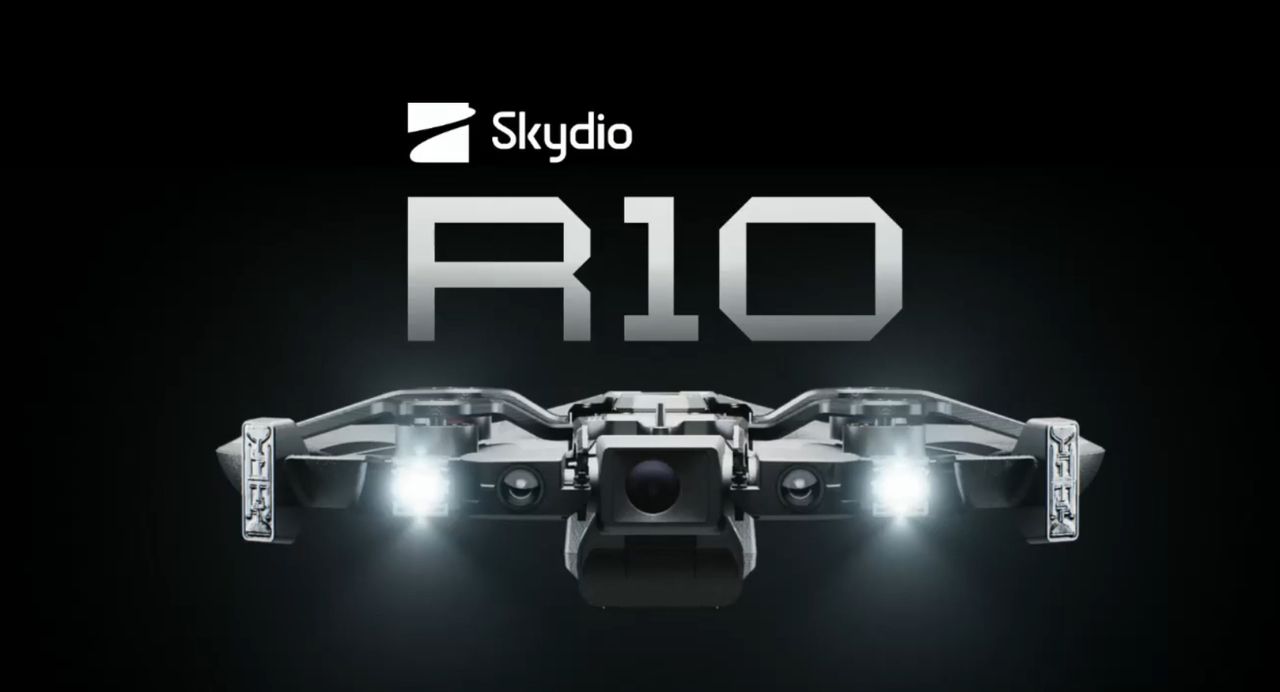
Adam Bray: "The future is here, it's just not evenly distributed" Skydio CEO tells people – before going on to introduce a number of companies using Skydio tech which he suggests will be the future.
Bray did say "the one bit of bad news" is that the company isn't able to keep up with demand for the X10 drone, before going to say that it isn't the only class of drone that matters... before turning to the idea of an FPV drone and showing pictures of hacked DJI Avata 2 drones and others.
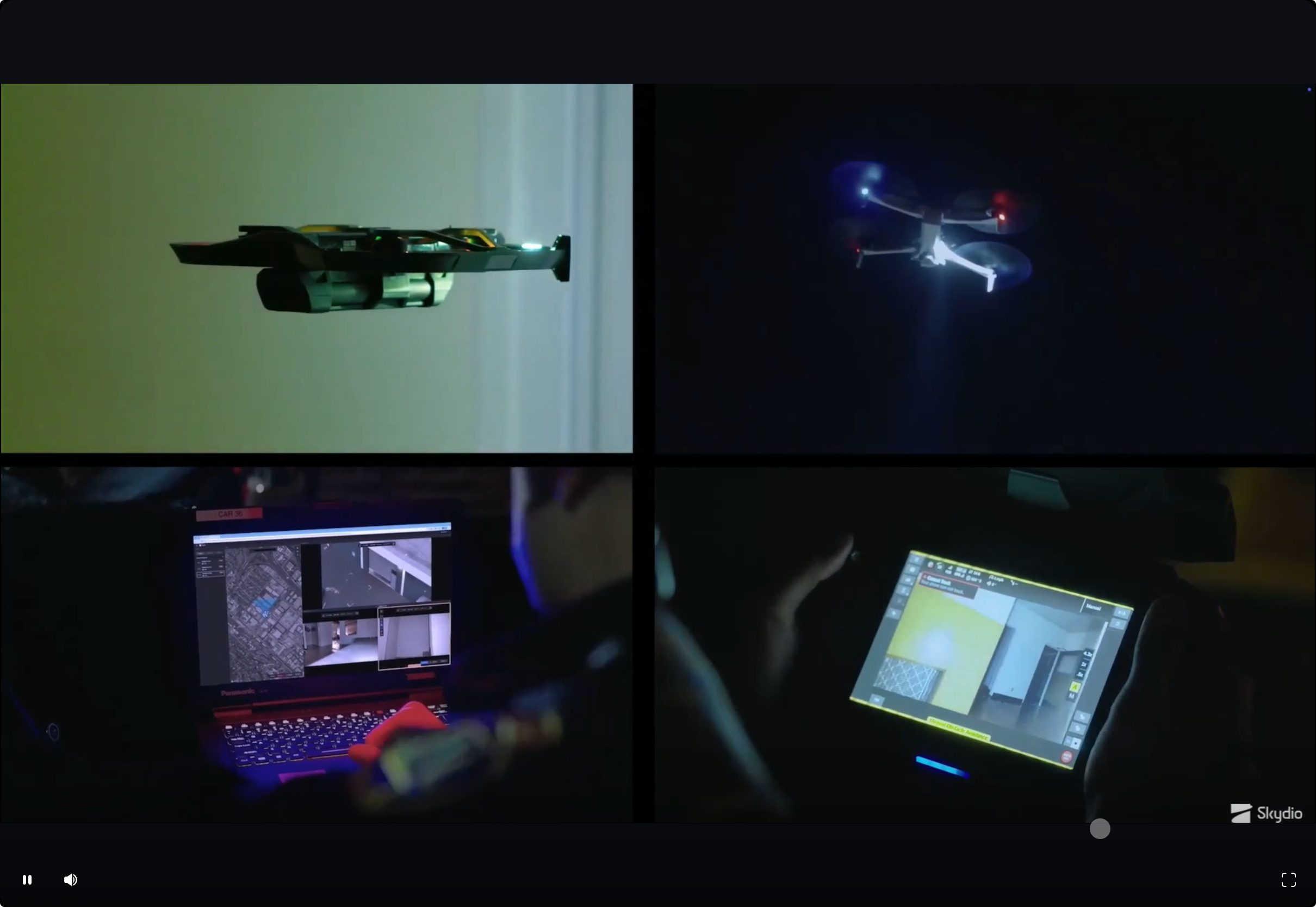
The R10 FPV style drone is designed to serve for police officers aiming to fly into buildings, perhaps to negotiate with criminals, so features speakers and a mic. It will sell for $5,995 and features turtle mode, so it flips itself over if it falls the wrong way up, and enough power that if it gets indoors and lands it can support up to 3 hours of negotiations, relaying video.
The most impressive thing in the presentation, though, was that it was struck by a baseball bat and could still fly... I thought for a moment. Sadly though this was just a promo for the replacement insurance scheme!
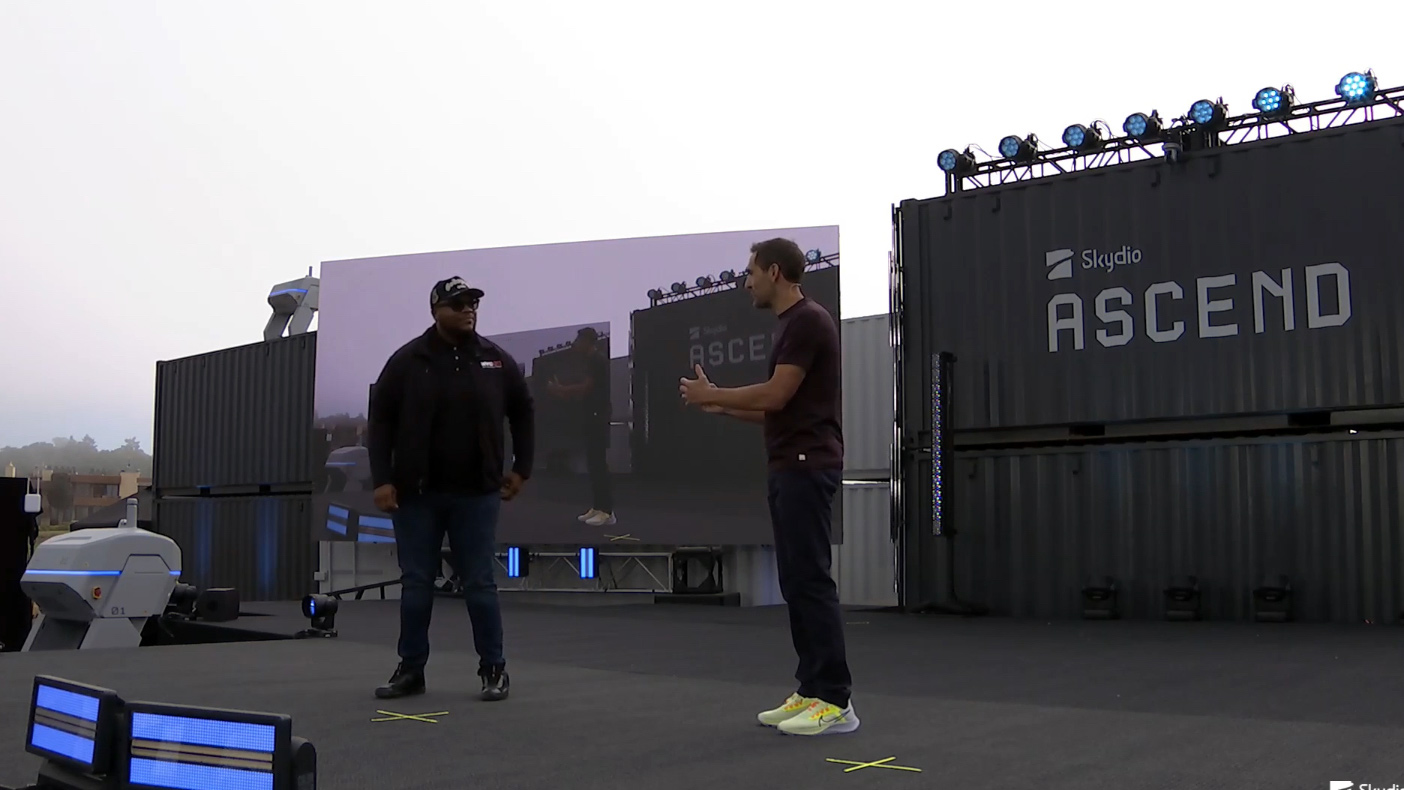
Bray told the assembled crowd that "we've always thought these things were aerospace devices," as an explanation of why the company has always built its products in the USA.
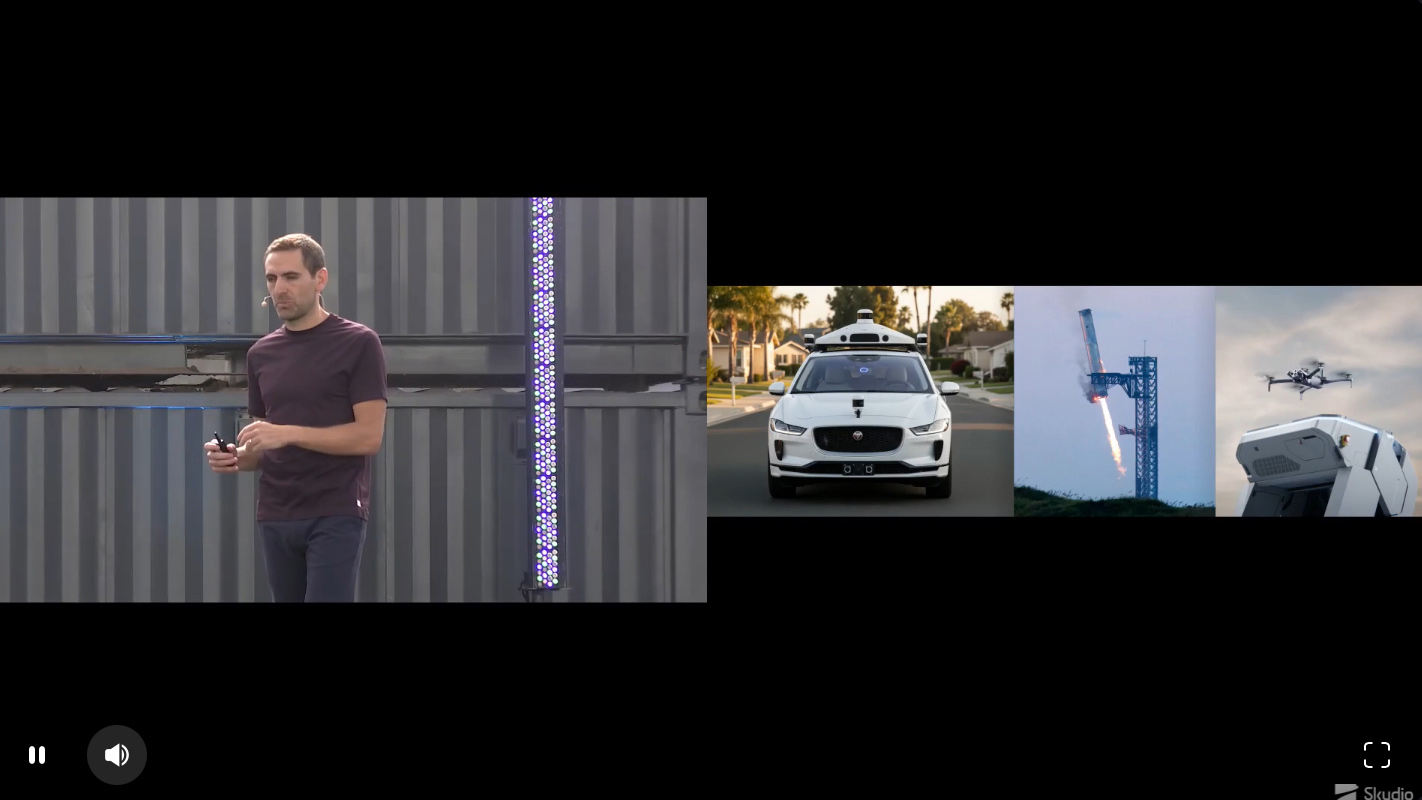
Bray use the rest of the keynote to tell Skydio users that the company intends to be very open about reliability issues that is has addressed over the years before the annual 'Ascend' events, and highlighted issues with the design of the remote controller, and another with grinding on drone's motors.
A red light of death had, apparently, caused the number of mission failures.
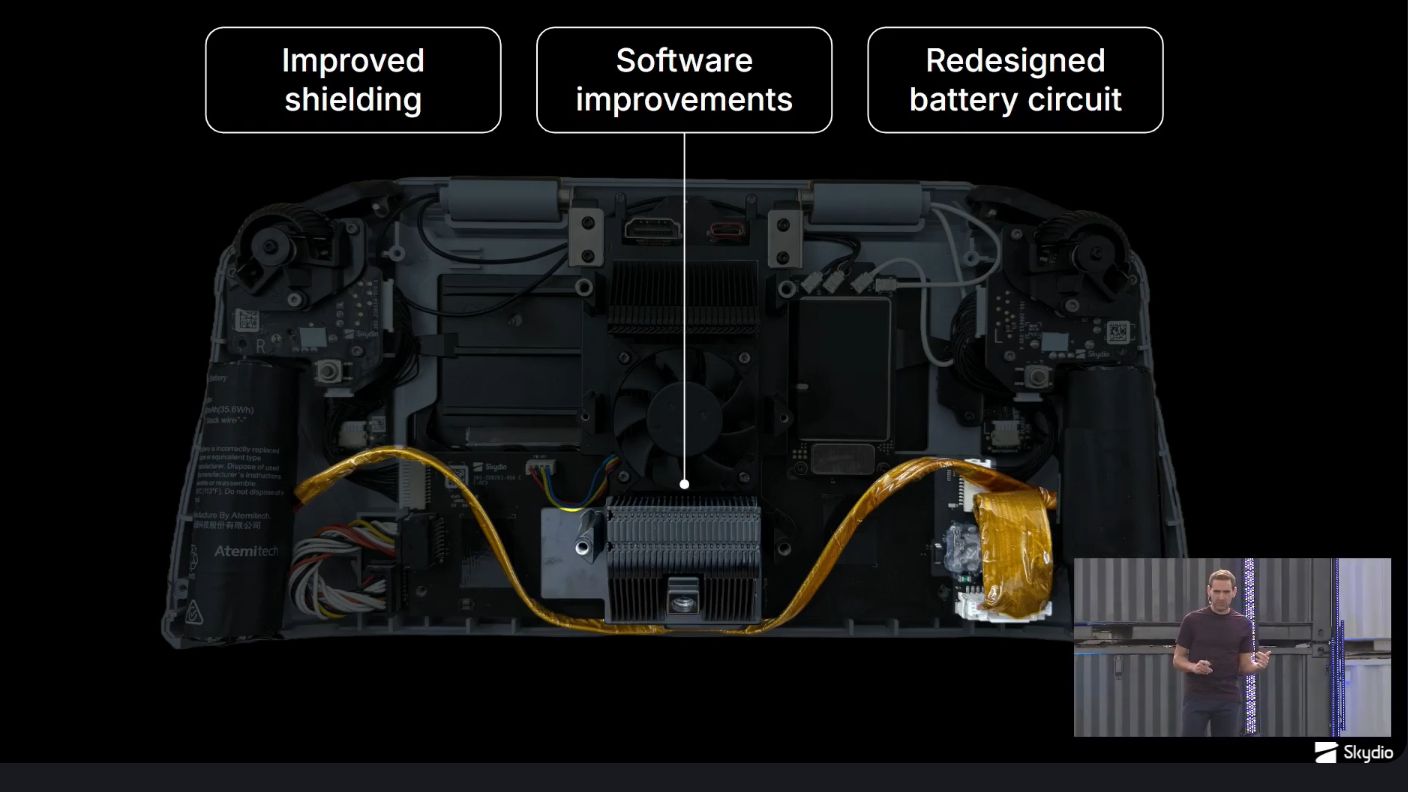
The company went on to announce its 'flight incident rate' will now be public – Bray called them crashes on stage, but suggested it was a term that wouldn't be used again! The information will share where the issues are 'human factors' or technical, and the 'reliability dashboard' will be public.
Bray also took the chance to highlight that a parachute was an option on the X10 to further reduce safety, which he compared against the risk factor of a DJI drone without a parachute falling on someone. Yes, the presentation was not shy of sneaking in the odd reference to Chinese competition.
Interestingly, he also suggested the data suggested dock-launched flights are 3 times safer than controller-launched flights.
Other new features include the option of an RTK attachment, and software to correct the camera's rolling shutter, but the one that got a round of applause was a 'dropper' – an attachment that can drop small items from the drone.
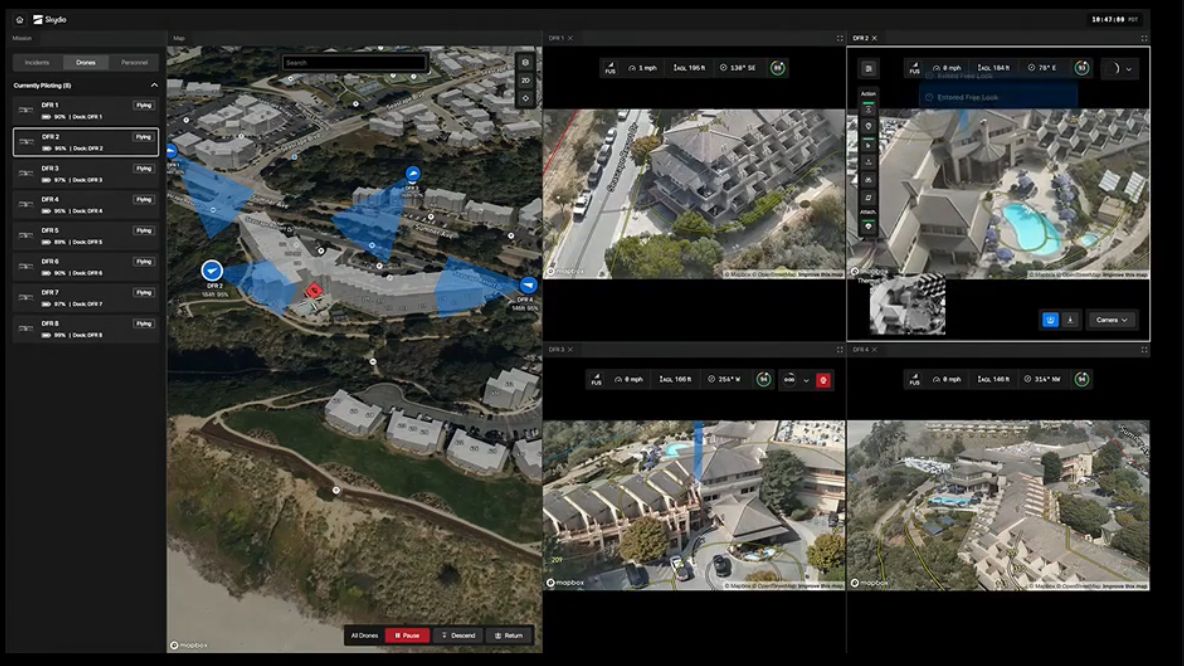
After the specifics, the presentation turned to present the software that allows an operator to control four drones at once – FAA approved. The scenario shown was distinctly dystopian, but it did work!
You might also like
Check our guide to the best camera drones, the best non-DJI drones, read my review of Skydio's last consumer drone, the Skydio 2+ review.







